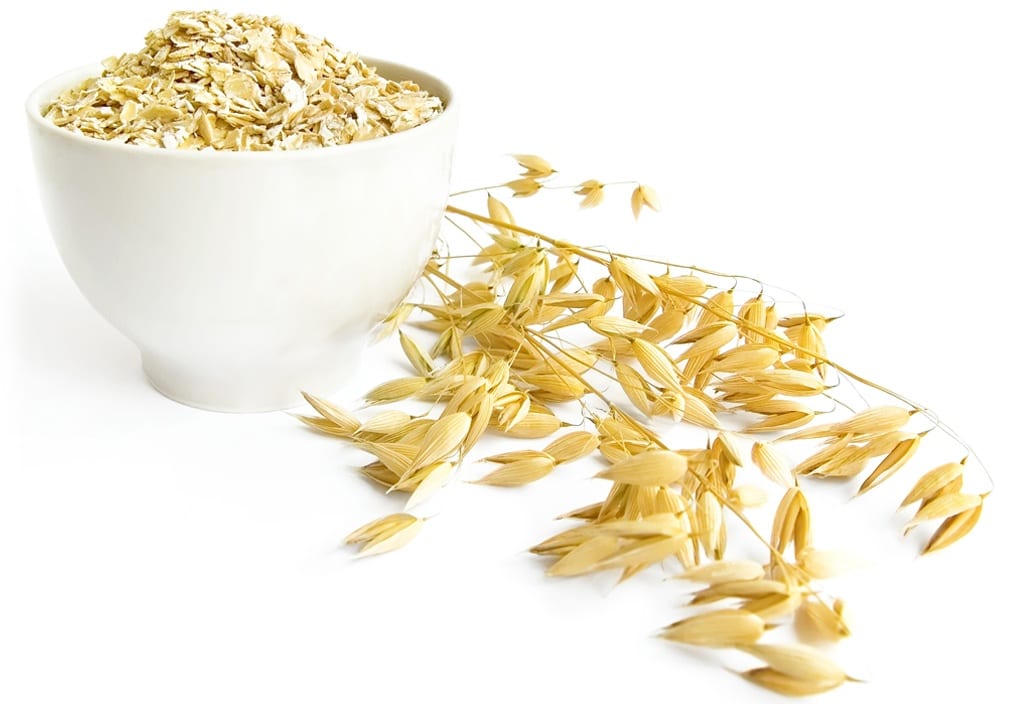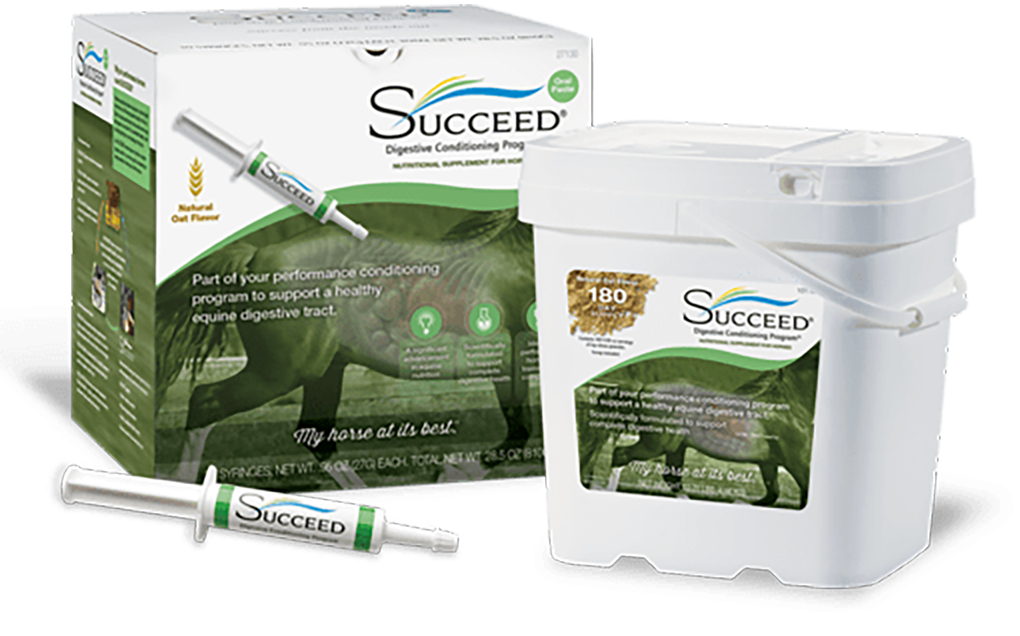
Health Benefits of Beta Glucan for Horses
Beta glucan, a polysaccharide, is found in a variety of naturally occurring substances, including yeast, barley and oats. Oat flour that is rich in beta glucan as a result of the type of oat and method of processing used, has several profound effects on typical animal systems contributing to overall digestive health.
In horses, beta glucan may be useful for:
- normalizing the rate at which food moves through the digestive tract
- regulating the release of sugars from the digestive system
- acting as a powerful stimulant to the immune system
- reducing LDL cholesterol levels in the blood
Beta Glucan Moderates the Rate of Digestion in Horses
When beta glucan is fed alongside hard feed, this soluble fiber creates a hydrogel that helps to moderate the transit of starches through the GI tract.
Slowing the transit of digesta through the gut with beta glucan:
- allows starches to be digested earlier in the system
- reduces the negative effects of starch in the hindgut
- increases nutrient absorption in the GI system
- regulates the release of sugars in the bloodstream
Digestive imbalance and hindgut acidosis can result when undigested starches and sugars reach the horse’s hindgut, and may lead to additional health conditions, including bacterial overgrowth. Increasing the contact time between the intestinal wall and ingesta allows for more complete digestion in the small intestine, minimizing the amount of simple carbohydrates entering the horse’s cecum and colon.
Beta Glucan Enhances the Immune System
Beta glucan is a potent stimulator of the immune system because it activates and strengthens macrophages, a type of white blood cell that has a specific beta glucan receptor.
Supplementing a horse’s diet with beta glucan may:
- stimulate macrophages and phagocytosis
- boost immunity and overall health
- counteract pathogenic microbes
When a horse develops an ulcer, for instance, beta glucan can aid in healing. While the etiology (that is, the underlying cause) of ulcers in horses is not well understood, research implicates bacteria in the formation of ulcers in many animals. It is difficult to culture bacteria from the equine gastrointestinal tract, but colonic bacteria are known to include a wide variety of pathogenic species. Beta glucan arouses the immune system to mount an attack on pathogenic microbes, fighting infection and healing damaged tissue.
Beta Glucan Moderates the Release of Sugar
Beta glucan also moderates the release of sugars from the digestive system, helping to prevent post-feed sugar highs and lows. This may positively influence behavior, especially in horses being fed high starch diets to meet energy demands. Studies have shown that beta glucan is effective in reducing glycemic peaks by up to 50% after feeding.
Beta Glucan to Support Equine Digestive Health
Assess your horse’s health to determine if added digestive support may be beneficial for health and performance.
References
Bell S, Goldman VM, Bistrian BR, et al. Effect of beta glucan from oats and yeast on serum lipids. Crit Rev Food Sci Nutr 1999;39:189-202 (review).
van den Berg, Mariette, et al. “Fecal pH and microbial populations in thoroughbred horses during transition from pasture to concentrate feeding.”Journal of Equine Veterinary Science 33.4 (2013): 215-222.
Braaten JT, Scott FW, Wood PJ, et al. High beta glucan oat bran and oat gum reduce postprandial blood glucose and insulin in subjects with and without type 2 diabetes. Diabet Med 1994;11:312-8.
Tappy LE, Gugolz E, et al. Effects of breakfast cereals containing various amounts of beta- glucan fibers on plasma glucose and insulin responses in NIDDM subjects. Diabetes Care 19(8):831-4.
Czop JK. The role of beta glucan receptors on blood and tissue leukocytes in phagocytosis and metabolic activation. Pathol Immunopahtol Res 1985;5:286-96.





See what #TeamSUCCEED riders are saying.






Is SUCCEED right for you?
Find out if your horse’s health and performance could benefit from added digestive support.
